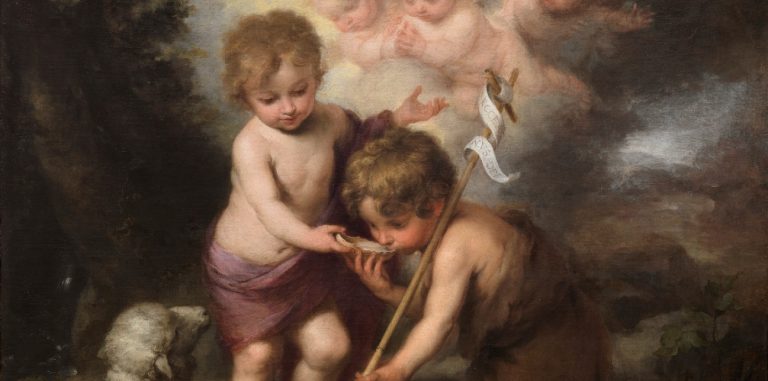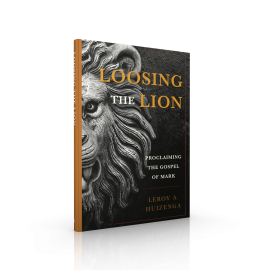By Leroy A. Huizenga
Leroy A. Huizenga is Administrative Chair of Human and Divine Sciences at the University of Mary in Bismarck, ND. He is the author of two books of Scripture reflections: Loosing the Lion: Proclaiming the Gospel of Mark and Behold the Christ: Proclaiming the Gospel of Matthew.

In Advent, thoughts naturally turn to the birth of little baby Jesus and his Mother, the Blessed Virgin Mary. And yet, the lectionary readings for the first and second weeks of Advent feature quite a few stories about John the Baptist, either with John himself as the protagonist or with Jesus discussing John and his significance.
Why does John the Baptist figure so prominently in the earlier days of Advent? There are three reasons. First, Advent deals not only with Jesus’s first coming as the babe of Bethlehem in the middle of salvation history but also with his Second Coming at the end of salvation history. Second, John the Baptist is the last of the old covenant prophets. Third, John the Baptist is Jesus’s forerunner in birth, message, and death.
Advent means “coming,” and it prepares for Jesus’s coming. He came as a baby, God incarnate on earth. But, with the readings about John the Baptist in Advent, the Church is teaching us to prepare for his Second Coming. The Gospel texts about John the Baptist paint him as a fiery apocalyptic prophet convinced the mighty one coming after him, Jesus, would bring about the end of the world and usher in the kingdom of God. That’s why the Church’s lectionary for Advent also presents Gospel texts about Jesus preaching about the kingdom and healing. Advent is meant to help us get our spiritual lives tuned up so that we’re ready when he comes back for good, for real, to conquer sin, death, hell, and the devil once and for all.
When they’re grown, John and Jesus preach the same message, the message that Jesus is the agent of the coming kingdom of God, in which all diseases will be cured, all demons and the devil banished, all the oppressed released as oppressors suffer their punishment, and all death conquered as the saints are raised to eternal life.
It is thus no accident that John and Jesus suffer the same fate. John is beheaded and Jesus crucified at the whim of craven political rulers installed by Rome: Herod Antipas and Pontius Pilate. Both rulers, at the outset, hesitate to have John and Jesus executed, but when push comes to shove, they decide it’s more expedient to kill them than to risk their own power, prestige, and position.
And so, Advent prepares us not merely to welcome and worship little baby Jesus, but to accept Jesus’s call to us to take up the cross and follow him. Our lives may be marked by suffering and martyrdom, but ultimately, his coming and our salvation are certain.
Learn More
Drama. Irony. Betrayal. Miracles. A holy war with the whole world at stake. And it’s all packed into the shortest of the four Gospels. Written in an engaging, lively, oral style, Loosing the Lion tells us how, despite being misunderstood and neglected throughout most of history, the Gospel of Mark has recently been experiencing a scholarly revival.
Keyed to the lectionary, it provides detailed reflections on the Mass readings for Cycle B to help you enter more deeply into Mass.
